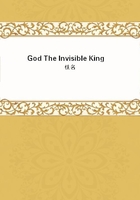
第32章
A very interesting case to discuss in relation to this question of adjustment is that of the barrister. A practising barrister under contemporary conditions does indeed give most typically the opportunity for examining the relation of an ordinary self-respecting wordly life, to life under the dispensation of God discovered. A barrister is usually a man of some energy and ambition, his honour is moulded by the traditions of an ancient and antiquated profession, instinctively self-preserving and yet with a real desire for consistency and respect. As a profession it has been greedy and defensively conservative, but it has never been shameless nor has it ever broken faith with its own large and selfish, but quite definite, propositions. It has never for instance had the shamelessness of such a traditionless and undisciplined class as the early factory organisers. It has never had the dull incoherent wickedness of the sort of men who exploit drunkenness and the turf. It offends within limits. Barristers can be, and are, disbarred. But it is now a profession extraordinarily out of date; its code of honour derives from a time of cruder and lower conceptions of human relationship. It apprehends the State as a mere "ring" kept about private disputations; it has not begun to move towards the modern conception of the collective enterprise as the determining criterion of human conduct. It sees its business as a mere play upon the rules of a game between man and man, or between men and men. They haggle, they dispute, they inflict and suffer wrongs, they evade dues, and are liable or entitled to penalties and compensations. The primary business of the law is held to be decision in these wrangles, and as wrangling is subject to artistic elaboration, the business of the barrister is the business of a professional wrangler; he is a bravo in wig and gown who fights the duels of ordinary men because they are incapable, very largely on account of the complexities of legal procedure, of fighting for themselves. His business is never to explore any fundamental right in the matter. His business is to say all that can be said for his client, and to conceal or minimise whatever can be said against his client. The successful promoted advocate, who in Britain and the United States of America is the judge, and whose habits and interests all incline him to disregard the realities of the case in favour of the points in the forensic game, then adjudicates upon the contest. . . .
Now this condition of things is clearly incompatible with the modern conception of the world as becoming a divine kingdom. When the world is openly and confessedly the kingdom of God, the law court will exist only to adjust the differing views of men as to the manner of their service to God; the only right of action one man will have against another will be that he has been prevented or hampered or distressed by the other in serving God. The idea of the law court will have changed entirely from a place of dispute, exaction and vengeance, to a place of adjustment. The individual or some state organisation will plead ON BEHALF OF THE COMMON GOODeither against some state official or state regulation, or against the actions or inaction of another individual. This is the only sort of legal proceedings compatible with the broad beliefs of the new faith. . . . Every religion that becomes ascendant, in so far as it is not otherworldly, must necessarily set its stamp upon the methods and administration of the law. That this was not the case with Christianity is one of the many contributory aspects that lead one to the conviction that it was not Christianity that took possession of the Roman empire, but an imperial adventurer who took possession of an all too complaisant Christianity.
Reverting now from these generalisations to the problem of the religious from which they arose, it will have become evident that the essential work of anyone who is conversant with the existing practice and literature of the law and whose natural abilities are forensic, will lie in the direction of reconstructing the theory and practice of the law in harmony with modern conceptions, of making that theory and practice clear and plain to ordinary men, of reforming the abuses of the profession by working for the separation of bar and judiciary, for the amalgamation of the solicitors and the barristers, and the like needed reforms. These are matters that will probably only be properly set right by a quickening of conscience among lawyers themselves. Of no class of men is the help and service so necessary to the practical establishment of God's kingdom, as of men learned and experienced in the law. And there is no reason why for the present an advocate should not continue to plead in the courts, provided he does his utmost only to handle cases in which he believes he can serve the right. Few righteous cases are ill-served by a frank disposition on the part of lawyer and client to put everything before the court. Thereby of course there arises a difficult case of conscience. What if a lawyer, believing his client to be in the right, discovers him to be in the wrong? He cannot throw up the case unless he has been scandalously deceived, because so he would betray the confidence his client has put in him to "see him through." He has a right to "give himself away," but not to "give away" his client in this fashion. If he has a chance of a private consultation I think he ought to do his best to make his client admit the truth of the case and give in, but failing this he has no right to be virtuous on behalf of another.